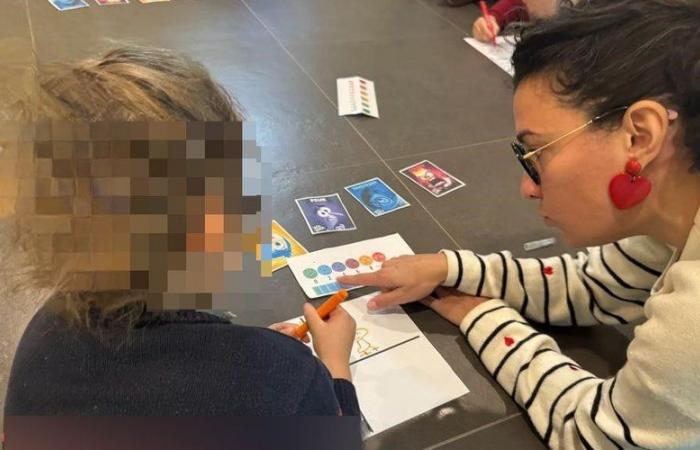the essential
In place since January 2023 within the Parentalités 46 association, the Phénix system intervenes to the aid of adults and children victims of domestic violence using a therapy little known to the general public: EMDR.
There is something a little mystical in EMDR therapy: “We don’t necessarily yet have an explanation of how it works. But when we do brain imaging in neurology, we see that it has an effect,” confirms Valériane Timmer, clinical psychologist, EMDR practitioner and coordinator of the Phénix system within the Parentalités 46 association. So much so that EMDR therapy is recognized by the WHO (2013), INSERM (2004 and 2015) and the High Authority of Health (2007). A therapy intended for people suffering from post-traumatic stress, which is at the heart of this Phénix system (unique in France), based in Cahors, Figeac and Gourdon, which takes care of victims of domestic violence. But then, what is EMDR therapy?
Treatment for post-traumatic stress syndrome
EMDR is neuro-emotional integration through eye movements. In French, you have to imagine a finger that is placed under your eyes, that you move from left to right, and that your gaze must follow. Or, they are physical gestures such as gently and regularly tapping the left knee then the right (“tapping”). In the language of the psychologist, these are “alternating bilateral stimulations”, which make it possible to repair “the information processing system”.
Also read:
“I even have children under 10 who ask to be consulted”: EMDR, a popular therapy in the Gers
A blocked system for people suffering from post-traumatic stress, for whom “the brain is no longer able to process information because the emotional brain is always on hyperalert and will constantly activate traumatic memories. We will reproduce the natural information processing system with, for example, these rapid eye movements,” analyzes Valériane Timmer.
Two particularities should be noted. First, these therapeutic sessions take place in groups – a way of showing victims that they are not alone. Then, we don’t talk about the trauma. No need: “We just ask them to think of the worst possible image, then do the exercises. And to think about it again. Each time, the patient gives a score from 0 to 10 to quantify their state of disturbance. We can see rapid developments, and at the moment,” explains Valériane Timmer.
“Talking about trauma can over-traumatize”
It is far away, the image of the psychologist who listens to you, while you are lying in an armchair, talking about the violence you suffered: “Talking about it can over-traumatize, it may not relieve. However, we do not replace traditional therapies, we intervene as a complement,” the psychologist insists.
At the Phénix system, the patients encountered are exclusively spouses or children who have developed post-traumatic stress syndrome following domestic violence. Victims discover this method only through the system’s partners: gendarmerie, police, social workers, victim support associations such as France Victimes or Pause aux Filaos, etc.
Also read:
A practice specializing in EMDR therapy located in Bouldou
A system that is all the more vital given that the number of victims of domestic violence has doubled since 2016, according to the annual study by the Ministerial Statistical Service for Internal Security (SSMSI). In the Lot, there are 9 victims per 1,000 inhabitants, which is equivalent to around 1,500 people per year.
It is for these people that the Phénix system exists. But EMDR therapy is not limited to victims of domestic violence since Valériane Timmer has already worked with victims of attacks, such as those of 2015 in Paris or that of 2016 in Nice. Is there a difference in treatment between victims of attacks and domestic violence?, we ask the psychologist one last time. No: “The difference is that, for victims of domestic violence, it’s a bit as if they were experiencing an attack every day, at least for the brain. »






